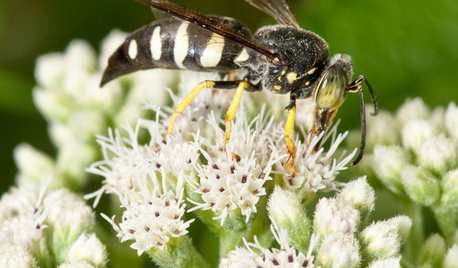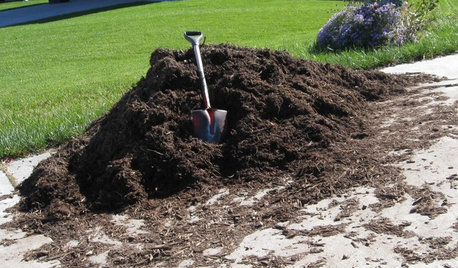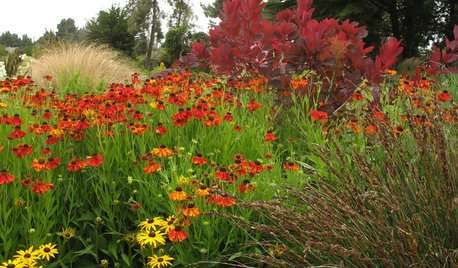18-46-0 (Bad for soil?)
kokos
13 years ago
Related Stories

PETSIncredible Home Catwalks Make for Purr-fectly Happy Felines
Walkways and tunnels custom built to the tune of about $35,000 keep a homeowner’s 18 cats on cloud nine
Full Story
GARDENING GUIDES6 Plants for Colorful Fall Foliage in the Water-Wise Western Garden
Try these colorful, drought-tolerant additions to your garden for a fall season filled with color
Full Story
GARDENING GUIDESSand Wasps Keep True Bugs in Check and Help Pollinate Summer Flowers
Look for these solitary wasps nesting in sandy sites and foraging on flowers in July and August
Full Story
FRONT YARD IDEASBefore and After: Front Lawn to Prairie Garden
How they did it: Homeowners create a plan, stick to it and keep the neighbors (and wildlife) in mind
Full StoryGREEN BUILDING11 Reasons to Live in a House of Straw
Don’t be fooled by the old folk tale. Straw bales are a strong, functional and good-looking building material
Full Story
FARM YOUR YARDHow to Build a Raised Bed for Your Veggies and Plants
Whether you’re farming your parking strip or beautifying your backyard, a planting box you make yourself can come in mighty handy
Full Story
GARAGESKey Measurements for the Perfect Garage
Get the dimensions that will let you fit one or more cars in your garage, plus storage and other needs
Full Story
PLANTING IDEASWant a More Colorful, Natural Garden? Try a Perennial Meadow
Spend less time tending and more time taking in the sights by improving on Victorian and prairie garden designs
Full Story
SAVING WATERXeriscape Gardens: How to Get a Beautiful Landscape With Less Water
Conserve water and make gardening much easier with the xeriscape approach’s 7 principles
Full Story
GARDENING GUIDESBoxwood: Still Shape-Shifting After 350 Years
Wild or mild, the humble boxwood still brings style and order to all kinds of gardens
Full StoryMore Discussions







ceth_k
Kimmsr
Related Professionals
Taylorsville Landscape Architects & Landscape Designers · Alexandria Landscape Contractors · Boca Raton Landscape Contractors · Deerfield Beach Landscape Contractors · El Mirage Landscape Contractors · Fort Wayne Landscape Contractors · Huntington Landscape Contractors · West Orange Landscape Contractors · Woodbury Landscape Contractors · Markham Landscape Contractors · Baton Rouge Decks, Patios & Outdoor Enclosures · High Point Decks, Patios & Outdoor Enclosures · Leander Decks, Patios & Outdoor Enclosures · Northbrook Decks, Patios & Outdoor Enclosures · Oswego Decks, Patios & Outdoor EnclosureskokosOriginal Author
phebe_greenhouse
Kimmsr
Lloyd
kokosOriginal Author
Lloyd
HendersonsPF
toxcrusadr
toxcrusadr
ceth_k
toxcrusadr
jonfrum
toxcrusadr
wayne_5 zone 6a Central Indiana
Kimmsr
wayne_5 zone 6a Central Indiana
Lloyd
wayne_5 zone 6a Central Indiana
Kimmsr
wayne_5 zone 6a Central Indiana
strobiculate
Kimmsr
toxcrusadr
strobiculate
Lloyd
Laurel Zito
toxcrusadr
Michael